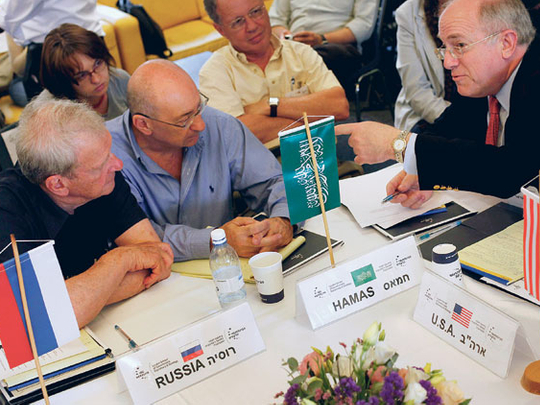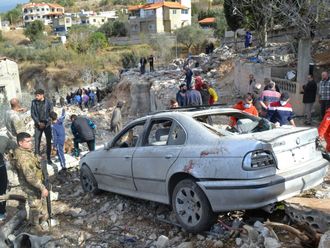
Herzliya, Israel: A nuclear-armed Iran would blunt Israel's military autonomy, a war game involving former Israeli generals and diplomats has concluded, though some players predicted Tehran would also exercise restraint.
Sunday's event at a campus north of Tel Aviv followed other high-profile Iran simulations in Israel and the United States in recent months. But it broke new ground by assuming the existence of what both countries have pledged to prevent: an Iranian bomb.
"Iranian deterrence proved dizzyingly effective," Eitan Ben Eliahu, a retired air force commander who played the Israeli defence minister, said in his summary of the 20-team meeting.
Though the war game saw Iran declaring itself a nuclear power in 2011, the ensuing confrontations were by proxy, in Lebanon.
In one, emboldened Hezbollah fighters fired missiles at the Defence Ministry in Tel Aviv. That was followed by US and Israeli intelligence findings that Iran had slipped radioactive materials to its Lebanese cohort, to assemble a crude device.
Neither move drew Israeli attacks, though Ben Eliahu said his delegation had received discreet encouragement from Arab rivals of Iran to "go all the way" in retaliating.
Instead, Israel conferred with the US, which publicly supported its ally's "right to self-defence" and mobilised military reinforcements for the region while quietly insisting the Israelis stand down to give crisis talks a chance.
"As far as the United States was concerned, Israel was trigger-happy. It sought to use the Hezbollah [missile] attack as justification for what the United States was told would be an all-out war," said Dan Kurtzer, a former US ambassador to Tel Aviv who played President Barack Obama.
Kurtzer voiced satisfaction with his team's response to the "dirty bomb", which entailed cajoling UN Security Council powers into mounting an armed intervention against Hezbollah.
"Countries like China and Russia have their own terrorists, and don't want to see them getting nuclear weapons," he said.
"In certain circumstances, agile US diplomacy can actually work in this region, and it ends up not only leaving Israel in check but it also ends up [with Washington] leading a willing international coalition."












